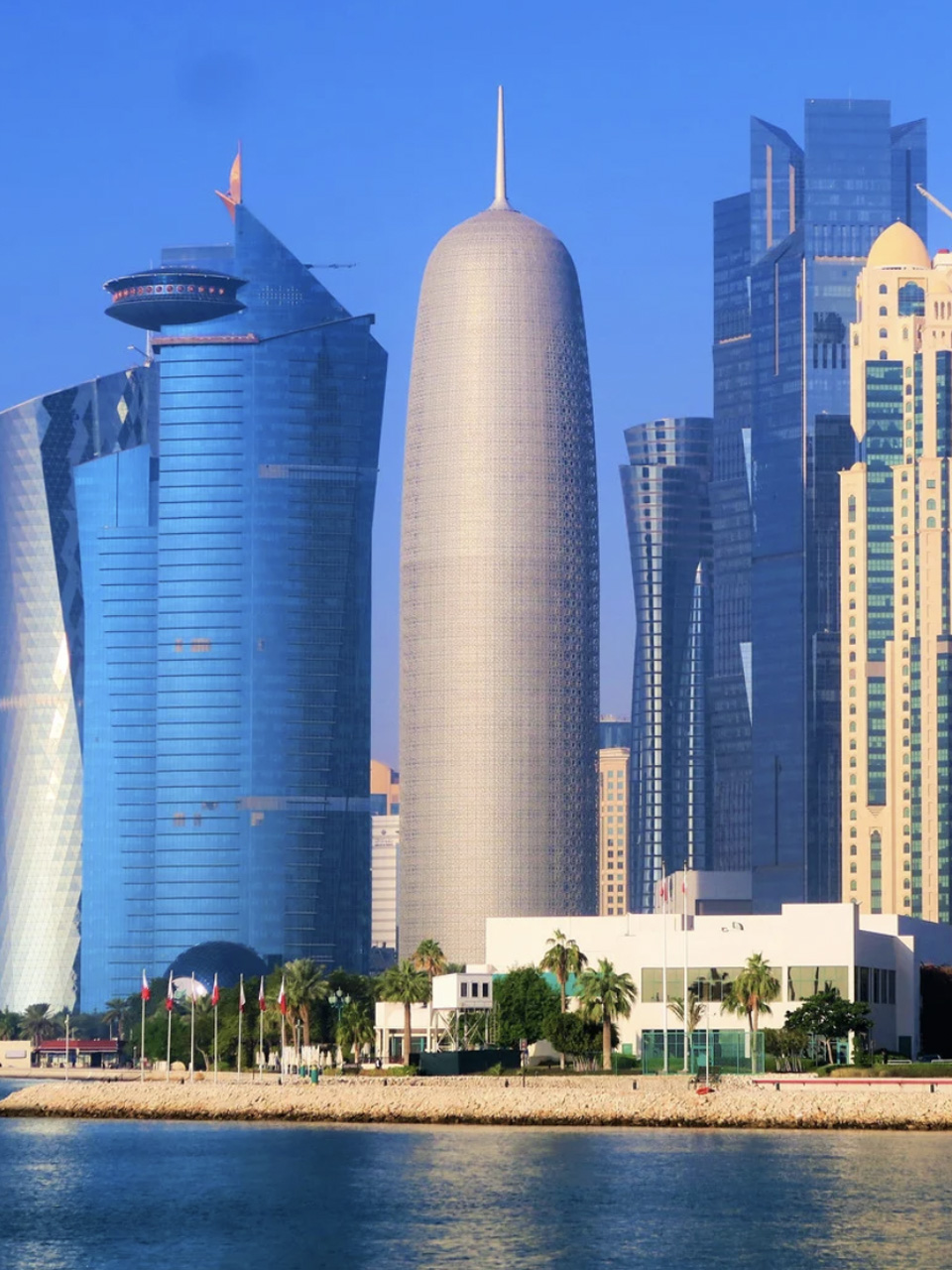For best experience, use Nutshell app on your smartphone.
10:50 am on 3 October 2022, Monday

By AFP
Fifty days before the World Cup kicks off in Qatar, workers are pouring concrete and hammering through the night to ready luxury hotels and bargain apartments for a million or more football fans.
Hundreds of migrants are labouring inside the 211 metre (696 feet) high Katara Towers, dramatically shaped like intertwined scimitar swords, where VIP guests of world football's governing body FIFA will stay during the tournament.
The wealthiest will pay thousands of dollars a night for rooms with marble wine cellars and a lobby with one of the world's biggest chandeliers.
Yet mountains of sand sit on the steps and some of the smoked glass windows are yet to be installed at this landmark on the Lusail seafront close to the stadium that will host the final.
"Everyone is working around the clock," said one engineer on the project, speaking on condition of anonymity.
"It will be touch and go whether everything is installed to suit people paying so much," this expert told AFP.
A spokesperson for the Accor group, which will run the Fairmont and Raffles hotels in Katara Towers, insisted they would be ready for "FIFA guests" during the World Cup and then officially open after the tournament.
- $50,000 a night chalet -
Frenzied work is being carried out across Doha.
Forty kilometres (25 miles) away in Barwa Barahat Al Janoub, another army of labourers works under floodlights at night and scorching sunlight in the day, to ready apartments for fans paying $84 a night for a steel bed in a shared room.
The Barwa complex, out in the semi-desert, is expected to house more than 7,500 World Cup fans and will later be used for the thousands of foreign workers who keep Qatar's oil- and gas-fuelled economy moving.
A source on the project -- which is 10 kilometres from a metro station -- said that hundreds of rooms still need to be finished and that workers were engaged in "a furious race against time".
A spokesperson for the Qatar organising committee said: "All of the accommodation options at the FIFA World Cup 2022 will be ready in good time before fans, teams and officials arrive in Qatar for the tournament."
A "comfortable inventory" exists for teams and fans, this spokesperson added.
Positioned at opposite extremes, the sword-shaped towers and austere workers' rooms will play key roles in housing supporters of the 32 nations taking part in the World Cup from November 20.
Organisers say that more than one million fans will visit and that 130,000 rooms will be usable in hotels, apartments, cruise ships and desert tents.
But some supporters have already complained about prices and the availability of rooms.
Other Gulf cities, especially Dubai, are reporting a World Cup boom driven by fans who are reluctant to stay in Qatar, in part also due to perceptions -- disputed by Doha -- that respect for LGBTQ rights and alcohol will be in short supply.
In Doha port there will be three cruise ships that can handle up to 13,000 people paying between $179 and $800 a night.
For $423 a night some supporters will be in traditional -- but air conditioned -- tents on a beachfront at Al Khor, north of Doha, with en-suite bathrooms, flat screen televisions and other luxury trappings.
One thousand bedouin-style tents are also being put up where fans can experience Qatari-style camping without air conditioning. Organisers have not announced the price.
Some Qatari landlords are trying to cash in on the World Cup, demanding $4,000-plus a night for Doha apartments. One two-bedroom chalet is advertised on booking.com at nearly $50,000 a night.
While 80 percent of Doha's 30,000 hotel rooms are reserved by FIFA, some open market suites are being advertised at $5,500 a night.
"There is a lot of negotiating going on over prices," said one Doha travel executive.
Nasser Al-Khater, chief executive of the World Cup Qatar organisers, stressed in a TV interview this week that official accommodation was being subsidised to keep prices down.
"The private sector also provides housing units and they have the right to determine the price they see suitable," he said.
bur-tw/dwo/it
© Agence France-Presse